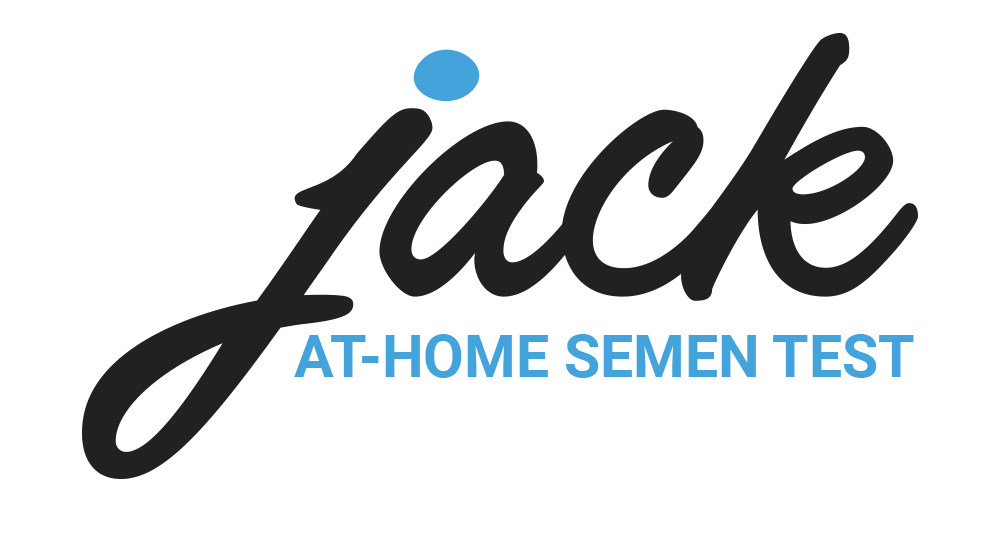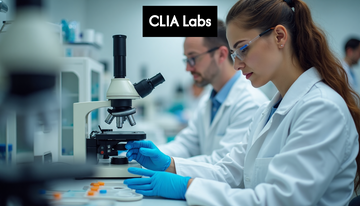CLIA certification is a game changer in healthcare testing, ensuring that laboratories meet strict standards for accuracy and reliability. Over 320,000 labs in the U.S. are CLIA certified, but here’s the kicker: many people still don’t know what that truly means for their health. The real surprise is that it’s not just about passing inspections. It’s about a comprehensive safety net designed to protect patients, ensuring that test results are not just numbers but pivotal tools for effective medical care.
Table of Contents
- What CLIA Certification Means For You
- Levels Of CLIA Certification Explained
- Why Choose A CLIA Certified Lab
- Ensuring Quality Lab Testing With CLIA
Quick Summary
| Takeaway | Explanation |
|---|---|
| CLIA Certification Ensures Quality | CLIA certification signifies that a lab meets rigorous standards for testing accuracy and reliability, protecting patient health. |
| Multiple Certification Levels Exist | Laboratories hold various certification levels, from Certificates of Waiver for simple tests to advanced certifications requiring thorough evaluations, ensuring appropriate oversight based on test complexity. |
| Global Relevance of CLIA Standards | CLIA certification applies not only to U.S. labs but also to international labs testing U.S. specimens, ensuring consistency in diagnostic quality across countries. |
| Ongoing Quality Control Mechanisms | Laboratories must implement comprehensive quality control strategies such as regular proficiency testing and continuous personnel training to maintain high standards. |
| Transition to Paperless Systems by 2026 | Starting March 1, 2026, CLIA-certified labs will adopt completely paperless administrative processes, enhancing efficiency and transparency in testing procedures. |
What CLIA Certification Means for You
CLIA certification represents a critical safeguard in medical testing, ensuring that laboratory services meet the highest standards of accuracy and reliability. When you encounter a CLIA certified lab, you’re experiencing a quality assurance system designed to protect patient health and diagnostic integrity.
Understanding the Core Patient Protections
CLIA (Clinical Laboratory Improvement Amendments) certification is more than just a regulatory requirement - it’s a comprehensive quality management system that directly impacts your healthcare experience. The Centers for Medicare & Medicaid Services (CMS) mandates strict guidelines that laboratories must follow to obtain and maintain certification.
For patients, this means every test result comes with an implicit guarantee of precision. Whether you’re getting routine blood work, complex genetic testing, or specialized diagnostic screenings, CLIA certification ensures that the laboratory performing your tests meets rigorous professional standards. These standards cover multiple critical aspects:
- Personnel Qualifications: Only trained and credentialed professionals can perform specific tests
- Equipment Accuracy: Regular calibration and maintenance of testing instruments
- Quality Control Protocols: Systematic verification of testing procedures and results
How CLIA Certification Impacts Your Medical Care
The real-world implications of CLIA certification are profound. According to CDC guidelines, these certifications guarantee that laboratories maintain consistent performance levels across different testing environments. This means your diagnostic results are reliable regardless of where the testing occurs.
For individuals managing chronic conditions, undergoing fertility treatments, or monitoring complex health issues, CLIA certification provides an additional layer of confidence. The certification process requires laboratories to:
- Demonstrate technical competence
- Implement robust quality management systems
- Participate in ongoing proficiency testing
- Maintain detailed documentation of testing processes
Beyond Domestic Testing: International Standards
Interestingly, CLIA certification isn’t limited to domestic laboratories. International laboratories testing specimens from U.S. patients must also meet these stringent requirements. This global approach ensures that patients receive consistently high-quality diagnostic services, regardless of geographical location.
For patients, understanding CLIA certification means recognizing that your health is protected by a comprehensive system designed to minimize errors and maximize diagnostic accuracy. When you see a CLIA certification, you can be confident that the laboratory has undergone extensive evaluation and continues to meet the highest standards of medical testing excellence.
Levels of CLIA Certification Explained
Understanding the different levels of CLIA certification is crucial for comprehending the comprehensive quality management system governing medical laboratory testing. Each certification level represents a specific tier of complexity, regulatory oversight, and testing capabilities.

Certificate of Waiver: Entry-Level Testing
The Centers for Medicare & Medicaid Services (CMS) defines the Certificate of Waiver as the most basic level of laboratory certification. This category applies to simple, low-risk tests that have minimal potential for error and can be performed with straightforward procedures. Typical waived tests include:
- Basic pregnancy tests
- Blood glucose monitoring
- Rapid strep throat tests
- Urine pregnancy tests
Laboratories with a Certificate of Waiver face the least stringent regulatory requirements. These facilities are typically found in physician offices, pharmacies, and community health centers where quick, routine testing is essential. While these certificates represent the lowest level of complexity, they still require adherence to manufacturer instructions and basic quality control measures.
Moderate And High Complexity Certifications
Beyond waived testing, laboratories perform more intricate diagnostic work requiring advanced certifications. According to CMS guidelines, there are two primary advanced certification paths:
-
Certificate of Compliance: Requires direct on-site inspection to verify adherence to CLIA standards. Laboratories undergo comprehensive evaluations of:
- Personnel qualifications
- Equipment maintenance
- Quality control protocols
- Documentation practices
-
Certificate of Accreditation: Granted to laboratories accredited by organizations with deemed status approved by CMS. These labs demonstrate compliance through rigorous external review processes.
International Considerations And Unique Challenges
While CLIA certification is primarily a U.S. regulatory framework, it sets a global standard for laboratory testing quality. International laboratories testing specimens from U.S. patients must meet equivalent standards, ensuring consistent diagnostic reliability across geographical boundaries.
The multi-tiered certification system reflects the complexity of modern medical diagnostics. From simple waived tests to advanced molecular diagnostics, each certification level represents a commitment to accurate, reliable patient testing. Understanding these levels empowers patients and healthcare providers to make informed decisions about laboratory services, ultimately supporting better healthcare outcomes.
Why Choose a CLIA Certified Lab
Choosing a CLIA certified laboratory isn’t just a recommendation - it’s a critical decision that directly impacts your healthcare quality and personal well-being. With approximately 320,000 laboratory entities across the United States, understanding the advantages of CLIA certification can help you make informed medical testing choices.
Guaranteed Testing Accuracy and Reliability
CLIA certification provides an unparalleled guarantee of diagnostic precision. The Centers for Medicare & Medicaid Services mandates rigorous standards that transform laboratory testing from a routine procedure to a scientifically validated process. These certifications ensure that every test undergoes multiple layers of quality control, minimizing the potential for human error or equipment malfunction.
Key accuracy benefits include:
- Precise Instrumentation: Regular calibration of testing equipment
- Skilled Personnel: Mandatory professional training and competency verification
- Continuous Monitoring: Ongoing proficiency testing and performance evaluations
Comprehensive Patient Protection Mechanisms
Beyond technical accuracy, CLIA certification represents a comprehensive patient protection framework. Laboratories must demonstrate consistent performance across multiple dimensions. According to clinical research, this means comprehensive oversight that extends far beyond basic testing protocols.
Protection mechanisms include:
- Mandatory documentation of all testing procedures
- Regular external inspections
- Immediate reporting of significant testing irregularities
- Transparent quality improvement processes
Future-Oriented Healthcare Standards
CLIA certification isn’t static - it’s a dynamic system evolving with medical technology. Starting March 1, 2026, laboratories will transition to completely paperless administrative processes, demonstrating the system’s commitment to technological advancement and efficiency.
For patients, choosing a CLIA certified lab means selecting a healthcare partner committed to:
- Cutting-edge diagnostic technologies
- Continuous professional development
- Transparent and accountable testing practices
Ultimately, CLIA certification transforms laboratory testing from a mere technical procedure into a sophisticated, patient-centered healthcare service. When you select a CLIA certified laboratory, you’re not just getting a test - you’re investing in your health through a meticulously regulated, scientifically validated diagnostic process. 
Ensuring Quality Lab Testing with CLIA
Quality laboratory testing is the cornerstone of accurate medical diagnosis, and the Clinical Laboratory Improvement Amendments (CLIA) provide a comprehensive framework to guarantee consistent, reliable testing standards across healthcare environments. These regulations represent a sophisticated approach to maintaining the highest levels of diagnostic precision and patient safety.
Comprehensive Quality Control Mechanisms
The Centers for Medicare & Medicaid Services have designed CLIA regulations to create multiple layers of quality assurance. These mechanisms go beyond simple compliance, establishing a robust system that continuously monitors and improves laboratory performance.
Key quality control strategies include:
- Regular Proficiency Testing: Laboratories must demonstrate ongoing competence through standardized performance evaluations
- Equipment Validation: Mandatory calibration and maintenance protocols for all testing instruments
- Personnel Competency Assessment: Continuous training and skill verification for laboratory professionals
Evolving Regulatory Standards
Recent updates to CLIA regulations reflect the dynamic nature of medical diagnostics. Starting January 2025, new provisions have been implemented to address emerging challenges in laboratory testing. The Joint Commission has introduced more stringent requirements, including:
- Enhanced reporting of microbiology organism identification
- Increased standards for antibody detection accuracy
- Stricter controls on proficiency testing referrals
Technological Modernization and Future Outlook
Beginning March 1, 2026, CLIA will transition to a completely paperless administrative system. This technological advancement demonstrates the ongoing commitment to streamlining and improving laboratory quality assurance processes.
The modernization efforts extend beyond administrative changes. They represent a broader vision of laboratory testing that emphasizes:
- Real-time data tracking
- Improved error detection
- More efficient quality management
- Enhanced transparency in diagnostic processes
For patients and healthcare providers, these continuous improvements mean more than just technical upgrades. They represent a commitment to delivering the most accurate, reliable diagnostic information possible. CLIA certification is not a static credential but a dynamic process of continuous improvement, ensuring that laboratory testing remains at the forefront of medical diagnostic excellence.
Ultimately, the CLIA framework transforms laboratory testing from a technical procedure into a patient-centered service. By maintaining rigorous standards, implementing cutting-edge technologies, and focusing on continuous improvement, CLIA-certified laboratories provide a critical safeguard in the complex landscape of modern healthcare diagnostics.
Frequently Asked Questions
What is CLIA certification?
CLIA certification, or Clinical Laboratory Improvement Amendments certification, ensures that laboratories meet strict standards for testing accuracy and reliability. It protects patient health by ensuring quality control measures are in place.
Why is it important to choose a CLIA certified lab?
Choosing a CLIA certified lab guarantees that your test results are accurate and reliable. These labs adhere to rigorous standards, which helps minimize errors and enhances patient safety.
What are the different levels of CLIA certification?
CLIA certification includes several levels: a Certificate of Waiver for simple tests, a Certificate of Compliance for moderate complexity tests, and a Certificate of Accreditation for labs accredited by approved organizations. Each level signifies varying degrees of complexity and regulatory oversight.
How does CLIA certification affect international labs?
International laboratories that test U.S. specimens must also meet CLIA standards, ensuring that diagnostic services maintain high quality globally. This global application helps provide consistent care regardless of geographical location.
Take Control of Your Fertility Journey with Jack At Home
Understanding your fertility status or confirming the success of a vasectomy can feel overwhelming, but it doesn’t have to be. As highlighted in the article, CLIA certified labs ensure the accuracy and reliability you deserve in testing. With Jack At Home, you can access the same level of precision without the hassle of clinical visits. Whether you’re seeking confirmation after a vasectomy or looking to monitor sperm health with routine analysis, we provide a discreet, reliable solution from the comfort of your home.

With a straightforward process, our kits include everything you need — from a non-latex collection condom to a pre-paid UPS shipping label — allowing you to send your sample to a CLIA certified lab for analysis. Plus, enjoy peace of mind knowing your results are securely managed and reviewed by professionals. Don’t wait to take charge of your reproductive health!
Visit JackAtHome.com today, select the testing kit that suits your needs, and get started on a path to clarity in your fertility journey — because your health shouldn’t take a backseat!





